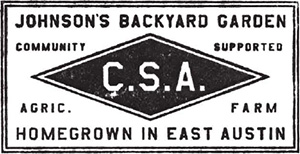
UPDATE FROM THE FIELDS: IT'S HOT.
08/16/19 — Farm
Monday through Friday of this week temperatures toppled 100 degrees. Twelve bulk bins of red watermelon were picked from our fields. Each bin is around 450 pounds. Twelve times 450 equates to around 5,400 pounds of watermelon harvested from the JBG fields. By hand. Every summer we find ourselves celebrating the hottest days of the year with a fun game of watermelon toss. Sweat pouring down your face and miss a melon? That's what we call a mandatory snack break. We've found this melon brigade to be the quickest way to harvest our heaviest crop, but watermelons are just the beginning. Korean melons have started to trickle in, and next week we expect cantaloupe, too. If bringing in 5,400 pounds of watermelon in the heat of the summer sounds tough, you're right. And that's just the harvest. After being picked, individual melons are carefully sorted and packed, destined for either a doorstep (via a CSA box), a shopping bag (market), or maybe even a cold paleta on a restaurant menu around town.
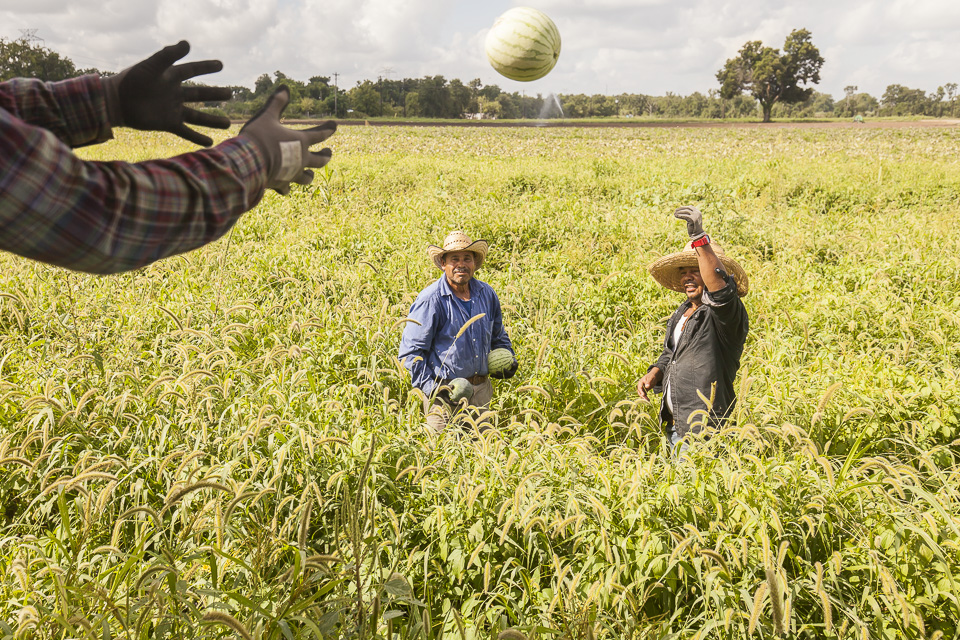 Watermelon toss. Photo by Scott David Gordon.
Watermelon toss. Photo by Scott David Gordon.
Farming in Texas in the heat of the summer is not for the faint of heart. In fact, if you feel faint or have any heart conditions, you should probably consider a field other than one of vegetables. At least for the months of July through September.
There is no doubt that summer is the most difficult season to farm in Texas. The ironic part is, you still can farm in summer. Many farmers across the country enjoy an off season in the winter months when freezing temperatures make it impossible to grow crops outdoors. But our winters are mild, robbing us of a true off season, and the payoff is a brutally hot summer. This summer, in particular, was a tricky one at JBG. Early in the season when our melon, squash, and cucumber plants should have been thriving and beginning to set fruit, we instead were faced with significant crop failure. June was wet, which created heavy bug pressure. A small (but hungry) group of feral hogs feasted their way through our melons... in the course of about one night. Late in the summer season, we realized that our primary planting of these crops wasn't going to produce the volume we needed, and so we crossed our fingers, ordered more seed, and planted more summer crops (and a lot of them).
Starting young transplants in the fields in the middle of summer is a risky move- the intense heat could have thwarted the growth, perhaps even killed the young plants, and we would have lost a lot of money. Luckily, June and early July were relatively cool, and we're now finally harvesting these summer favorites in notable volume. CSA Members, thank you for hanging on. We hope your celebrate this agricultural win with a 5 course zucchini feast (link) and perhaps a watermelon margarita. In addition to the heavy harvest-schedule of this later-than-usual summer bounty, our farm crew is extremely busy with fall planting. In fact, August is the heaviest planting month of the year. Despite the oven-like conditions, beds must be thoughtfully prepped for a successful fall crop. Once the watermelons are picked, the kale must be planted, and the work never truly ends in a Texas August.
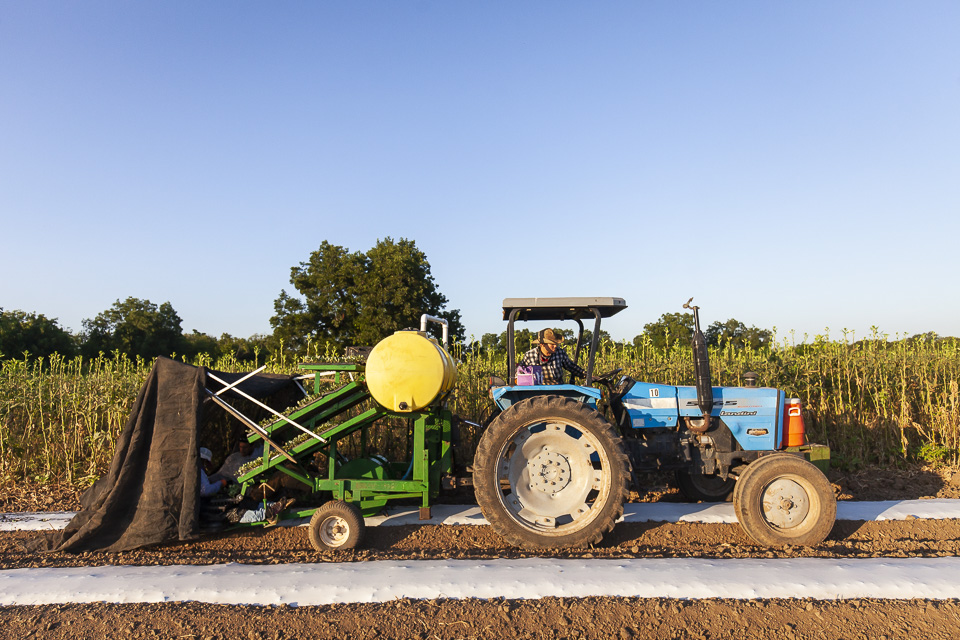 Perhaps our best idea of the week, made of some spare tent parts and a bit of shade cloth. Photo by Scott David Gordon.
Perhaps our best idea of the week, made of some spare tent parts and a bit of shade cloth. Photo by Scott David Gordon.
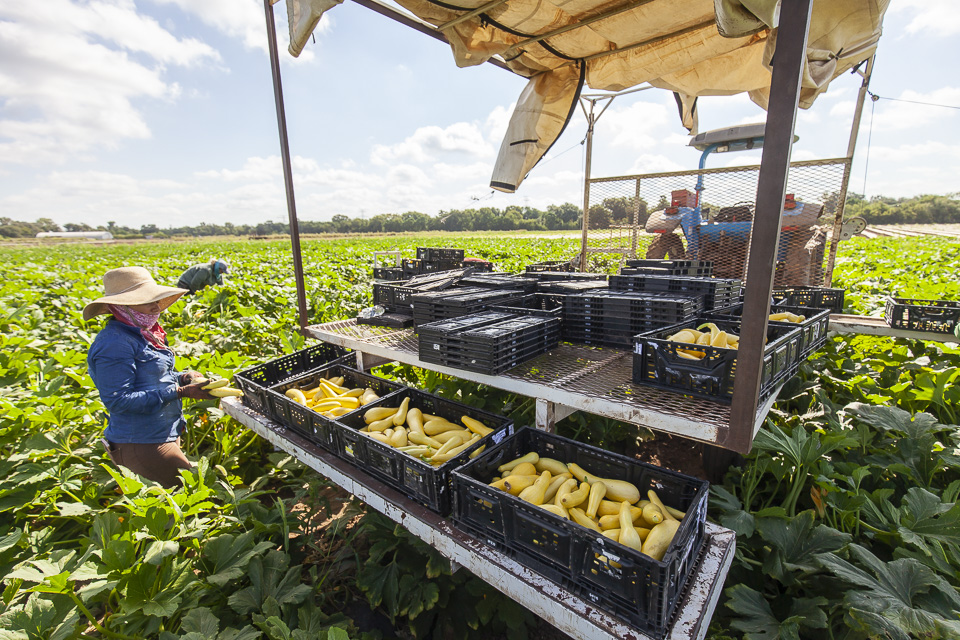 Our shaded harvest trailer helps to begin the cooling process from the moment the vegetables are picked. Photo by Scott David Gordon.
Our shaded harvest trailer helps to begin the cooling process from the moment the vegetables are picked. Photo by Scott David Gordon.
Physically, summer is hard on our crew (popsicle sponsorship, anyone?), but the heat is also tough on our vegetables. Many crops are well adapted to grow in 100 degree temperatures, but the heat can take a toll on these vegetables beginning from the moment they're plucked from the vine, separated from their water source. Sales to outlets like Whole Foods are usually an important part of our financial structure, but unfortunately it can be difficult for us to meet the rigorous cosmetic stands of grocery stores in the heat of the summer, rendering this sales outlet unusable. Summer is also a lean time at the farm financially. As you now know, August is the busiest planting month of the year, which also translates to one of the most expensive months of the year - seeds, soil inputs, compost.. it all must be purchased and not a moment too late.
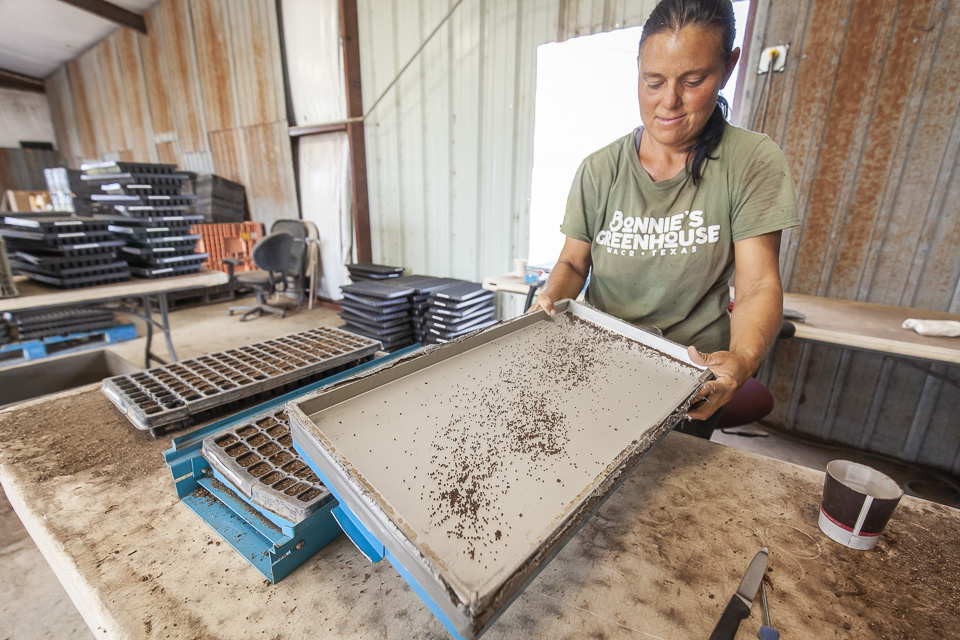 Seeding brassicas. Photo by Scott David Gordon.
Seeding brassicas. Photo by Scott David Gordon.
This dance between bug pressure and piling expenses, watermelons lost and watermelons gained, is a normal part of the business of farming. We're never truly surprised by the curveballs mother nature throws our way, and equip ourselves the best we can to withstand the summer heat, both literal and metaphorical. And guess what? If you're reading this, you're a big part of this puzzle. Purchasing ugly or "inglorious" produce at the farmers market helps insure we have an outlet for our less-photogenic but just as nutritious and tasty summer produce. CSA Memberships, and the money you pay us up-front, enable us to finance our staggering August expenditures at a time with other cashflow is slow. CSA Members - the friends you refer not only warm our hearts but also help pay our staff. Thank you.
It's going to be a bountiful fall, ya'll, and it can't come a moment too soon. We're sweating out here.
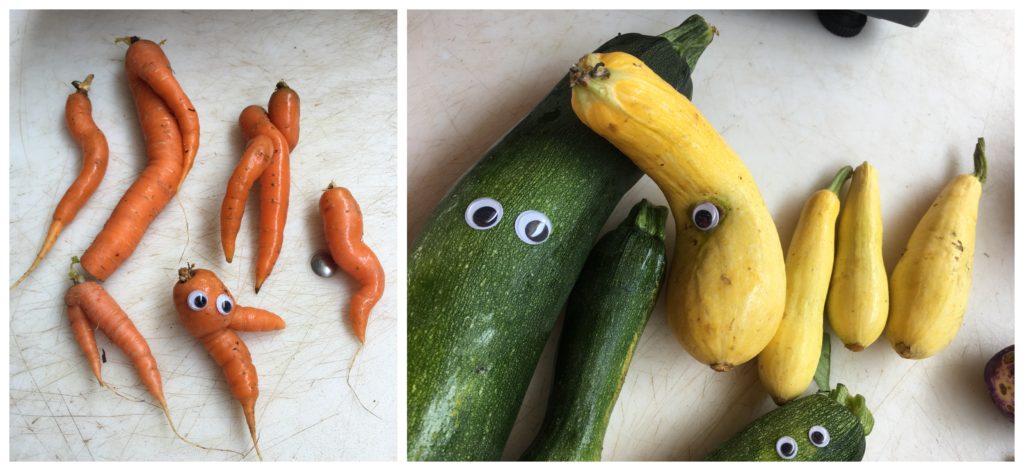
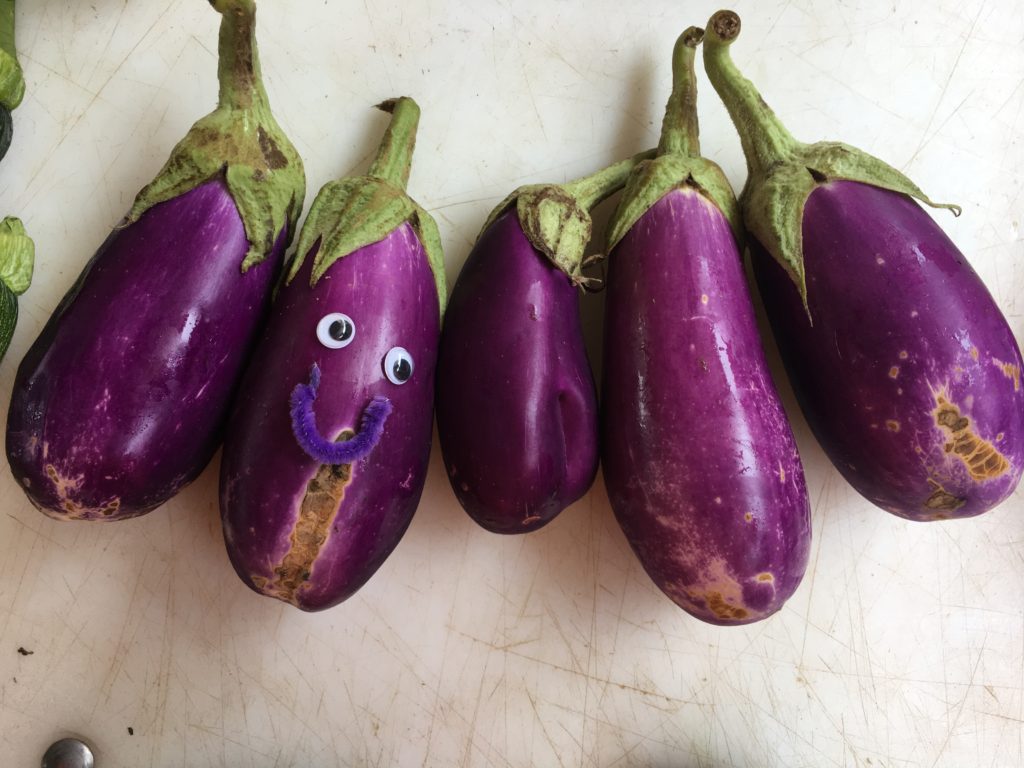 "Inglorious" produce is just as nutritious and delicious as its blemish-free counterparts. Photo by Joyce.
"Inglorious" produce is just as nutritious and delicious as its blemish-free counterparts. Photo by Joyce.






 0 ITEMS IN CART
0 ITEMS IN CART 
